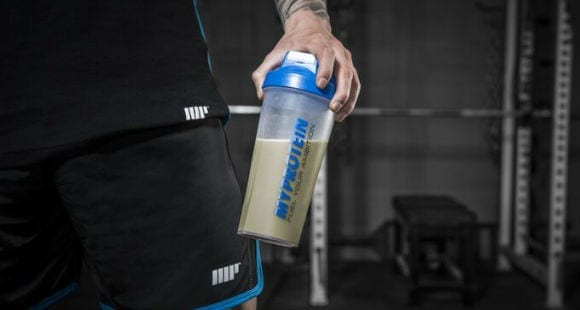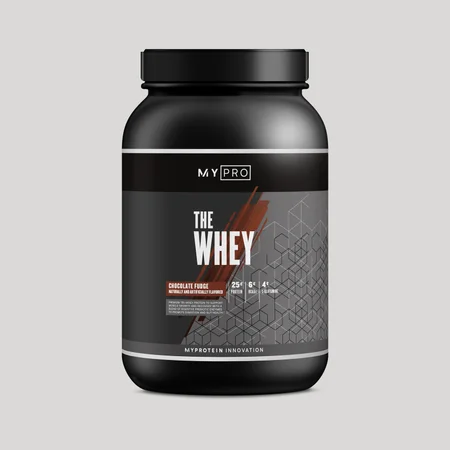
If you’ve spent any time in the gym at all, you are well aware that protein is essential for building muscle, along with providing a slew of other health-centric benefits. Despite this common knowledge, there seems to be a persistent inflow of questions regarding the dairy-derivative of this sacred macronutrient: whey. In this article you will find some of the most commonly asked questions, along with a corresponding clarification for each inquiry, concerning whey protein. It’s time for you to get pro with the protein!
1. Is whey protein good for you?

The only exception for whey protein being bad for you is if an individual has issues digesting dairy (i.e. lactose intolerance) – if this is the case, I recommend they seek out an alternative egg, soy or vegan protein supplement instead.
2. When should I take whey protein?
A: ANYTIME! Highly regarded as a post-workout essential, whey protein in particular is recommended to be consumed either first thing in the morning or immediately following a workout as it is fully digested within 90 minutes of consumption, thus providing instantaneous mTOR activation and recovery stimulus to your fatigued muscles. This is possible due to whey’s dense concentration of biologically available amino acids, particularly leucine.
However, despite this fact, whey protein can be taken whenever an individual needs to satisfy their protein requirements – when paired with complex carbs, fiber and healthy fats, the digestion rate of whey is sustained for a greater amount of time, resulting in a steadier release of amino acids into the body. Simply put, whey protein is still protein and can be consumed regardless of the given scenario – it is equally beneficial when taken post-workout or as a healthy meal alternative.
3. Is whey protein gluten-free?
A: Essentially, this answer varies based on the manufacturer of a particular whey protein product. Although gluten-free by nature, some whey proteins can be processed in gluten-contaminated facilities or my contain added gluten in the form of stabilizers, thickeners, crumbs or cookie bits included in order to enhance the given product’s flavor profile.
Gluten-free protein powders are by no means an anomaly, however you must be a scrutinizing purchaser regardless. If gluten is of concern, be sure to closely examine your whey protein’s label in order to discern whether or not your product contains gluten. For a safe bet, opt with 100% pure whey protein without any added colors, flavors or additives.
4. Does whey protein make you fat?
A: Technically speaking, whey protein can make you fat, but in this same sense vegetables can make you fat as well. The reason for this is that it is not individual foods that contribute to weight gain, but rather an individual person’s consumption of calories that exceeds that of their daily caloric expenditure. Science aside, calories in = calories out, and if someone is eating more calories than they burn off, they will gain fat.
With this in mind, it is recommended to calculate your individual protein needs with an online protein calculator that considers your current activity levels and fitness goals. Just remember that a little extra protein can most definitely do a body good, but too much of anything is never beneficial.
5. Where does whey protein come from?

The end product is a highly-concentrated, virtually fat-free dehydrated protein source. If desired, this powder is then blended with colorings, flavorings, sweeteners and potentially other various sports supplements in order to further enhance the overall experience and quality of the product.
6. Does whey protein expire?
A: As with all foods, whey protein does have a sell-by date in order to guarantee the quality of freshness, taste and product potency. However, as stated in Question 5, whey protein is a dehydrated food source. Technically speaking, if the product has remained sealed or has been opened but remained in a dry environment, the whey protein is potentially safe to consume for several months or even a few years past its expiration date.
This is not a guarantee, however – whey protein is dairy, and dairy is notorious for going rancid. Take this fact with heavy consideration: if your old whey protein powder looks, smells or tastes off or nasty, it most likely went bad. At this point, it is best to toss the tub and purchase a new container for health’s sake.
7. Is whey protein paleo?
A: According to standards held consistent across strict practitioners of the paleo diet, whey protein is, by definition, not a paleo food in the sense that our ancestors did not consume any form of dairy during the Paleolithic Era. On top of this, whey protein is a processed supplement and typically contains other additives or sweeteners, both of which are red flags by paleo standards.

However, just because something is not paleo does not mean that it is unhealthy! Whey protein has countless health benefits and it can easily be included in a healthy non-paleo diet. If you are a serious paleo eater, however, it is wise to think twice before making yourself a whey protein shake. If you aren’t eating like a caveman on the daily, do not feel obliged to adhere to a diet that you are not committed to.
8. How much whey protein per day?
A: This answer solely depends on an individual’s protein requirements, which can vary quite drastically. To figure this out, use an online protein calculator to calculate your individual protein needs. From here, you must think more rationally – as part of a healthy lifestyle, it is recommended to incorporate various sources of different foods in order to fulfil not only your daily macros but your micronutrient needs as well.
This means that although whey protein is cheap, convenient, healthy and low in calories, you should not make it your primary food source. Rather, aim to include it in a balanced diet consisting of other quality protein sources as well, such as chicken, eggs, dairy, soy and lean cuts of beef. After all, whey protein is considered a supplement for a reason!
Now you are well informed on many of the frequently-asked questions concerning whey protein! Utilize this info next time you purchase a tub of protein powder and use it to your advantage during your fitness journey. Whey protein can be a powerful player in any fitness-enthusiast’s supplement arsenal, so why not include it in your own? You are well on your way to achieving your goals, and using a high-quality whey protein supplement like Impact Whey will only help you FUEL YOUR AMBITION to achieve them even faster!










